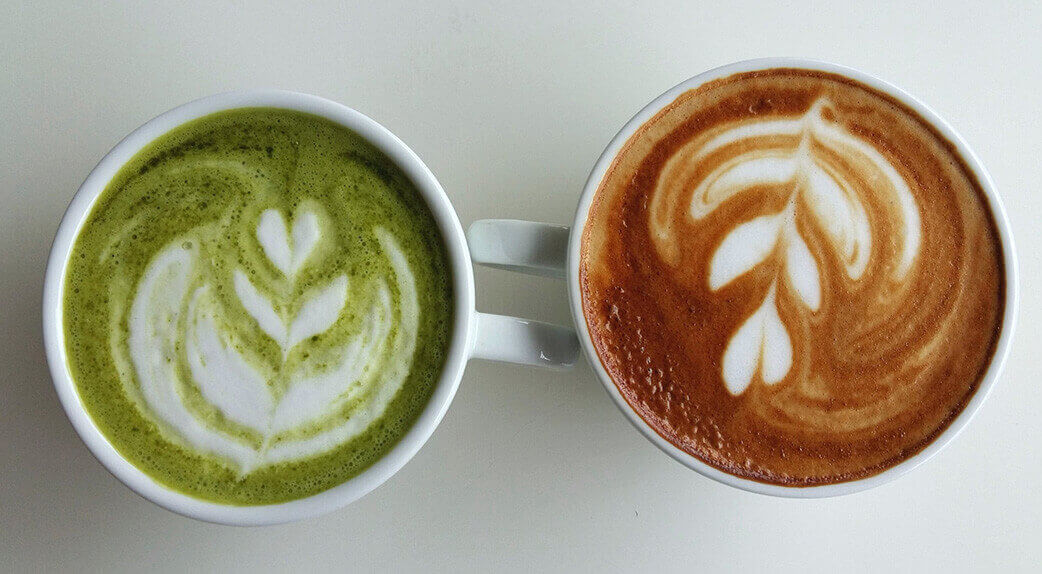As more and more people try to cut down on their coffee consumption, is it a good idea to replace it with matcha tea? Does this green tea powder, so traditional in Japan and increasingly popular in the West, provide as much energy to the body? What are its health benefits? What is its theine content, also known as tea caffeine? Here are some answers...

Is theine present in matcha tea?
Yes, theine (tea caffeine) is present in matcha tea, as it is in all other teas grown on the planet. It acts as a natural insecticide in plants such as tea, cocoa and coffee, but its effects on humans are fortunately different: it reduces drowsiness for a time and increases concentration. Because of its manufacturing process, black tea (the most oxidised) is the richest in theine (notably because it releases it more quickly), ahead of green tea, then white tea, which is reputed to be the "lightest". Present in tea leaves and matcha tea powder, theine (or caffeine, as it is the same molecule) is released when they are immersed in hot water.
Why is theine more concentrated in matcha tea?
This is due to the different way of consuming the tea. It is the same shrub (the tea plant), and the same tea leaves, whether you choose classic green tea or matcha tea. Except that for a classic green tea, the tea leaves are infused in water, which dilutes the concentration of theine. For matcha tea, the tea leaf has been ground into a powder, before being fully absorbed. You "drink" the leaf. This means that the entire concentration of theine in the leaf is absorbed. In the case of other teas, infused, the leaf as such is not ingested. This is why matcha tea is so rich in health benefits!
Is matcha tea a stimulant?
No, it is a natural stimulant. Matcha can be drunk in the morning or before a sports session to give you a bit more energy. The presence of theine acts on our cerebral system, increasing alertness and preventing sleepiness.
What is the energising effect of matcha tea compared to coffee?
The precise caffeine or theine content is always uncertain, it varies from one tea or coffee to another depending on the characteristics of its cultivation and the preparation of the drink. While coffee has a temporary invigorating effect, followed by a "downhill" effect about two hours later, matcha tea has a similar stimulating effect, but which lasts longer and more slowly. Matcha remains active in the body for 8 hours. Another molecule in matcha - theanine - is known to have a beneficial effect on memory and concentration.
Read also: Coffee or matcha: the great duel!
Should you avoid drinking matcha tea in the evening?
As with tea or coffee, the impact of caffeine on sleep depends on individual sensitivity. If you find that drinking matcha tea in the afternoon interferes with your sleep, make sure you drink it in the morning. Then, in the afternoon, choose 100% caffeine-free teas such as rooibos orherbal teas which promote concentration and/or relaxation.
How to choose a quality matcha tea?
Make sure you buy a bright green matcha tea from Japan. You should also keep an eye on the price, because a matcha tea sold at too low a price is not necessarily a good sign. The organic designation is a real plus as it guarantees a quality tea without pesticides and grown in an environmentally friendly way. To discover our complete guide, click here!
Rich in theine, matcha will be perfect to give you energy during your day. With its many health benefits, this unusual tasting drink is a tradition in Japan. It is also a good alternative for people who want to reduce or moderate their coffee consumption. Preference for the organic version!
Read also on the same theme :
How to prepare your matcha tea?
Mate or matcha: what to choose?
Everything you need to know about the matcha plant
